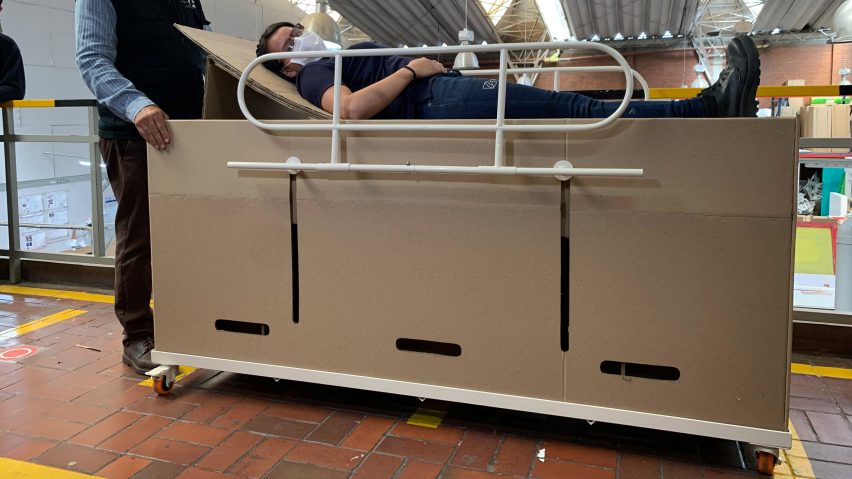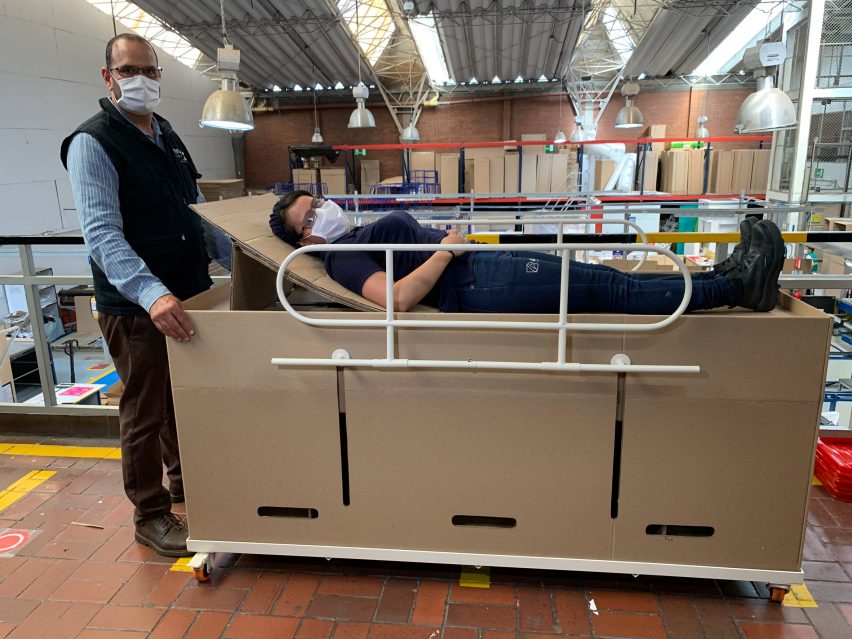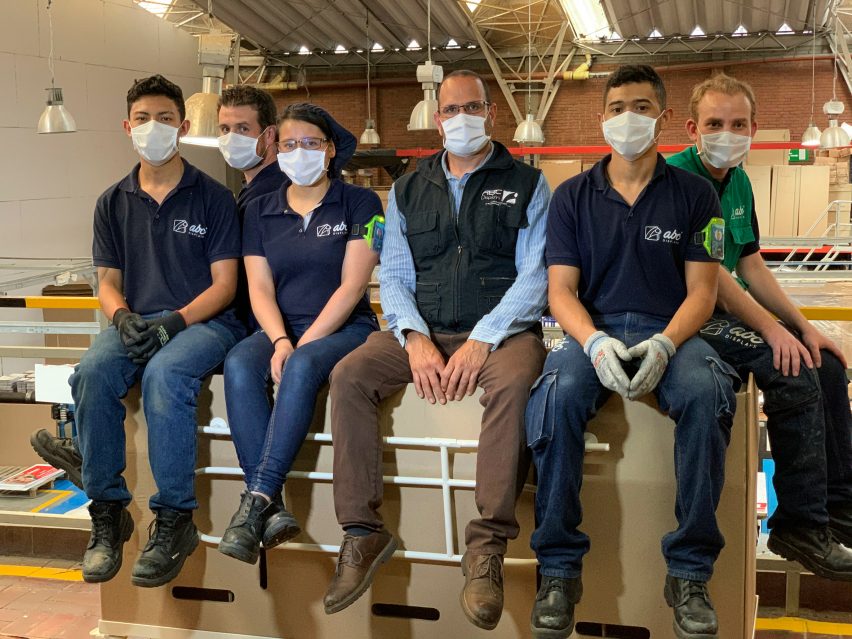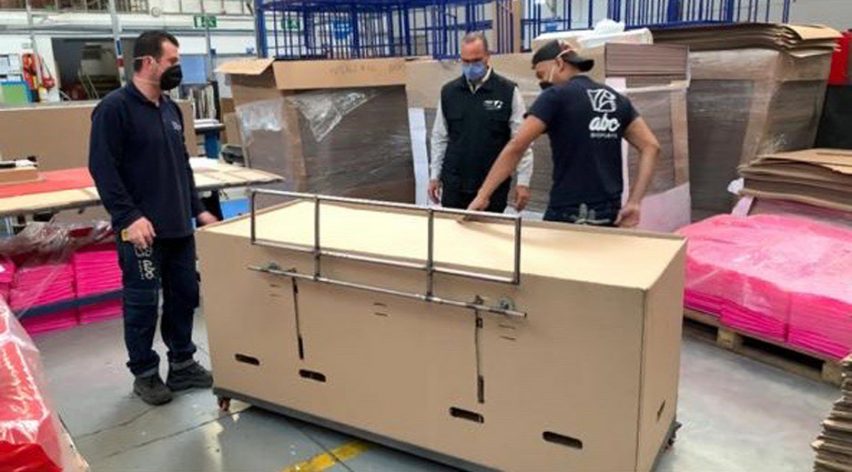
Cardboard hospital beds that double as coffins developed as "worthy solution" to coronavirus crisis
A Colombian company has created a flatpack hospital bed made of cardboard that can be transformed into a coffin as healthcare services are overwhelmed by coronavirus victims.
ABC Displays, a company in Bogotá that specialises in advertising materials, has started making and distributing the low-cost bed for coronavirus patients. In the worst-case scenario, each bed can be rapidly reconfigured to become a cardboard coffin.

Rodolfo Gómez, CEO of ABC Display,s told Dezeen that the idea came after seeing the dire situation in the neighbouring country of Ecuador.
There, mortuaries have been overwhelmed and the government had to distribute emergency cardboard coffins for bodies that were left on the streets.
"Currently what we are looking for is to supply a real need in the face of the crisis that has occurred worldwide with Covid-19," said Gómez.
"It is a worthy solution so that people are not lying on the floor of hospitals and [they] are not throwing them in mass graves if they die," he continued.

As a hospital bed, the cardboard design has slots in its sides for railings and can be mounted on a metal trolley.
ABC Displays said they consulted with doctors and hospital staff during prototyping to make sure the bed had the best dimensions for treating coronavirus patients.
Sheets and blankets can be used to cover the bed so that the patient doesn't know that it is made from cardboard.
"When a patient arrives at the clinic, he will never realise the bed in which he is laid is cardboard because it is covered with sheets and prepared like a normal hospital bed," said Gómez.
"It is about saving lives, giving decent care to people suffering from virus diseases and in some way we are also thinking about the biological risk of the personal doctor [so] that in the worst case if the patient dies, the personal doctor does not expose himself as much by having to remove a discovered body from a medical centre."

Cardboard was chosen for several reasons. According to recent studies, coronavirus can only survive on cardboard surfaces for 24 hours, whereas it lives for two to three days on materials such as wood, metal and plastic.
Each bed can be shipped flat-packed, and the corrugated cardboard is light but strong enough to support 150 to 200 kilograms. An average adult weighs just 62 kilograms.
ABC Displays is sending a donation of cardboard beds to Leticia in the Amazon region on the border with Peru and Brazil. Leticia's biggest hospital has only five ventilators, reported the Bogota Post, and no intensive care unit beds. Colombia currently has over 25,300 coronavirus cases and has registered over 800 deaths.
The company will donate beds to the worst affected regions and is offering to sell them to other local governments in places such as Peru that are looking for inexpensive solutions to bed shortages. ABC Displays estimates it can manufacture 3,000 beds a month if needed.
"The company has all the capacity to export these beds worldwide, considering that there are airlines with the availability to make and carry humanitarian aid," said Gómez.
The coronavirus has stretched healthcare systems around the world to breaking point, exposing flaws in the design of equipment and facilities.
Italian architect Carlo Ratti told Dezeen that "dinosaur" hospitals need a complete redesign while Dr Sam Smith, a clinical physician at Massachusetts General Hospital in Boston, said that hospitals "desperately need designers".
Photography is courtesy of ABC Displays.